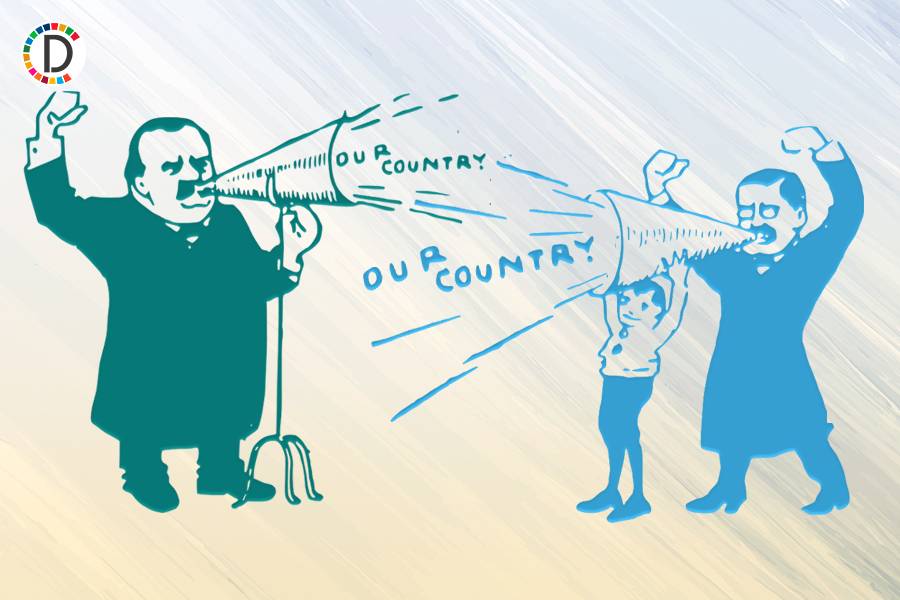Gaza truce or Rafah assault? Netanyahu faces political dilemma
On Sunday, Israeli Finance Minister Bezalel Smotrich urged Netanyahu not to back away from a ground offensive against Hamas in Rafah, even as the premier is grappling with pressure from international allies to scrap assault plans due to the risk of high civilian casualties and a humanitarian disaster. But a ceasefire would be a humiliating defeat, Smotrich said in a video he released to the press and addressed to Netanyahu.

Far-right allies of Israeli Prime Minister Benjamin Netanyahu are raising pressure on the embattled leader to reject a new Gaza ceasefire, jeopardising his government's stability if he backs away from an assault on Hamas in Rafah.
Hamas representatives were due in Cairo on Monday as mediators step up efforts toward a ceasefire deal ahead of a threatened Israeli storming of Rafah, an area by the Egyptian border, where around a million Palestinians displaced by Israel's military campaign elsewhere in Gaza are sheltering. But Israel says four remaining battalions of Palestinian Islamist group Hamas are entrenched there - after over six months of war triggered by Hamas' cross-border strike on Oct. 7 - and that it will attack them after evacuating civilians.
However, if a ceasefire is agreed, the attack plans will be shelved in favour of a "period of sustained calm", according to a source briefed on the talks, during which a few dozen hostages of Hamas will be released in return for Palestinian prisoners. On Sunday, Israeli Finance Minister Bezalel Smotrich urged Netanyahu not to back away from a ground offensive against Hamas in Rafah, even as the premier is grappling with pressure from international allies to scrap assault plans due to the risk of high civilian casualties and a humanitarian disaster.
But a ceasefire would be a humiliating defeat, Smotrich said in a video he released to the press and addressed to Netanyahu. If it fails to stamp out Hamas, "a government headed by you will have no right to exist," he said. Smotrich was swiftly followed by police minister Itamar Ben-Gvir, who reposted on X a Jan. 30 remark made during a previous round of ceasefire talks: "Reminder: An irresponsible deal = the government's dissolution."
Netanyahu's office and his conservative Likud party have not issued a response to the ministers' statements. His spokespeople were not immediately available for comment on Monday, which marked the Jewish holiday of Passover. But Benny Gantz, a centrist former defence minister who joined Netanyahu's emergency war cabinet in October, offered his own rebuke, saying that freeing hostages took precedence over an assault on Rafah.
The rejection of a responsible deal that would secure a hostage release, Gantz said in a statement, would strip the government of any legitimacy - given its Oct. 7 security failure and the clamour in Israel for the return of hostages. Though his popularity has soared in the polls since joining the war cabinet, Gantz lacks the power to bring down the government because together with Smotrich and Ben-Gvir's parties, Netanyahu controls 64 of parliament's 120 seats.
PROTESTS OVER CONDUCT OF WAR Ben-Gvir and Smotrich have drawn U.S. ire over anti-Palestinian remarks and policies supporting settlers in the Israeli-occupied West Bank, even before the Gaza war. With their combined 13 Knesset seats, either could dissolve the government.
If that happened, Netanyahu would have to obtain backing from more centrist parties or face an election. But a vote would pose serious risk for Netanyahu.
Successive polls have attested to his steep loss in popularity over Hamas' Oct. 7 attack - the worst on Jews since the Holocaust and Israel's single deadliest day. His present coalition faces a resounding election defeat, polls suggest. At the same time, Israel's longest serving premier is on trial on charges of corruption, in which he denies any wrongdoing, and facing mounting protests over his conduct of the war.
Israel's air and ground war has devastated much of the Gaza Strip and uprooted most of its 2.3 million people. But Hamas has not been defeated and tens of thousands of Israelis are still displaced from homes in the south, due to Hamas' October rampage, and in the north due to daily rocket fire from Lebanese Shi'ite Muslim militant group Hezbollah. And around 130 hostages remain in Gaza. A video released by Hamas on Wednesday, which showed U.S.-Israeli hostage Hersh Goldberg-Polin, stirred spontaneous protests around Netanyahu's residence in Jerusalem.
Protesters lit bonfires and raised their hands, painted red, while chanting "Bring them all back home!" Police scuffled with some demonstrators and escorted Ben-Gvir, who had been attending a nearby event, through a crowd chanting, "For shame." Families of some hostages have become increasingly outspoken against Netanyahu, accusing him of putting his own political survival ahead of the fate of their loved ones. Netanyahu strongly denies this and says he is doing all he can to secure a hostage release, which he says has mostly been held up by Hamas.
Einav Zangauker, the mother of Matan Zangauker, 24, who was abducted from his kibbutz home on Oct. 7, said that there will be no forgiveness if the government misses the present opportunity to strike a deal. Addressing Netanyahu at a rally in Tel Aviv on Saturday, she said: "You have left 133 hostages to rot in Hamas tunnels just to keep your seat." (Writing by Maayan Lubell; editing by James Mackenzie and Mark Heinrich)
(This story has not been edited by Devdiscourse staff and is auto-generated from a syndicated feed.)










